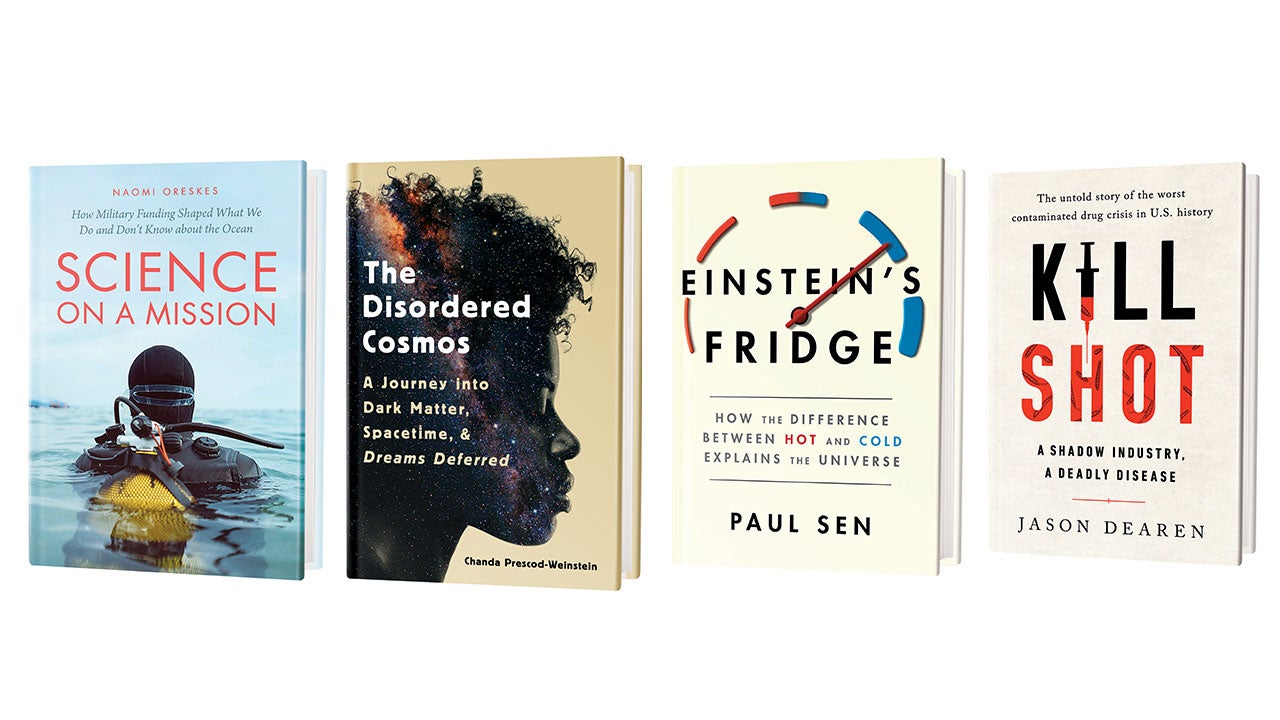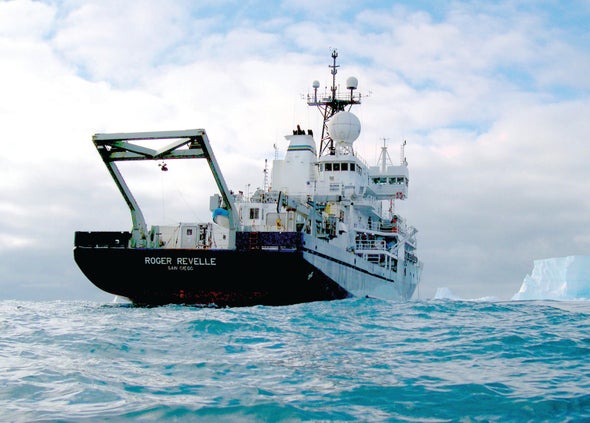Science on a Mission: How Military Funding Shaped What We Do and Don't Know about the Ocean
by Naomi Oreskes
University of Chicago Press, 2020 ($40)
How much does funding affect the course of scientific discovery? In this insightful book, science historian (and Scientific American columnist) Oreskes examines the military backing that poured into oceanography programs during World War II and the cold war. The expansion of naval warfare created a sudden need to better understand the deep sea. Oreskes shows that in some cases, that largesse enriched our knowledge—for example, the need to study the effect of water density on sonar transmission led to a breakthrough in understanding deep ocean circulation. But military secrecy also prevented discussions and publication of crucial ocean research; bathymetric data about undersea topography that would have been useful for the development of plate tectonic theory were kept classified, for example. Overall, the book reminds us that science does not happen in a vacuum. —Andrea Thompson
The Disordered Cosmos: A Journey into Dark Matter, Spacetime, and Dreams Deferred
by Chanda Prescod-Weinstein
Bold Type Books, 2021 ($28)
“I used to think physics was just physics, separate from people,” writes theoretical physicist Prescod-Weinstein. “I was wrong.” In this eye-opening book Prescod-Weinstein describes her work studying particle physics, dark matter and cosmology, as well as how that work is affected by being a “queer agender Black woman” in physics. She has faced abuse most of her colleagues have not—told by advisers she was not smart enough to be a physicist and subjected to racism and even physical assault from fellow researchers. Somehow her awe at the cosmos remained intact, and it illuminates this fascinating tour of the universe, from cosmic inflation to the physics of melanin. —Clara Moskowitz
Einstein’s Fridge: How the Difference between Hot and Cold Explains the Universe
by Paul Sen
Scribner, 2021 ($28)
Although thermodynamics has been studied for hundreds of years, filmmaker Sen writes, few nonscientists appreciate how its principles have shaped the modern world. “From sewage pumps to jet engines ... to the biochemistry of lifesaving drugs, all the technology that we take for granted needs an understanding of energy, temperature, and entropy,” he writes. To elucidate this field—including Einstein's lesser-known contributions—Sen sums up the history of thermodynamics, blending the biographies of key scientists with explanations of how their work led to specific innovations. These figures include pioneer Sadi Carnot, the first to describe an ideal heat-driven engine, and mathematician Emmy Noether, whose theorems on the conservation of energy vindicated Einstein. —Sophie Bushwick
Kill Shot:A Shadow Industry, a Deadly Disease
by Jason Dearen
Avery, 2021 ($27)
Pharmaceutical-industry regulation is not often featured in the plot of murder mysteries—but that is exactly how Dearen's Kill Shot reads. In it, the Associated Press investigative journalist traces the disturbing story of a contaminated batch of pain-relieving steroid injections that sickened nearly 800 people around the U.S. in 2012 and killed more than 100. As a growing number of patients who received the injections started to show signs of fungal meningitis, the Centers for Disease Control and Prevention began to investigate. The source of the botched drugs was a family-owned pharmacy that grew into a lucrative business by exploiting a loophole in U.S. drug regulations. The company's pharmacists were put on trial for murder and fraud, but no verdict will bring back the lives of those killed by deadly negligence. —Tanya Lewis



